 MyCatBreeds
MyCatBreeds Both American Longhair and American Keuda are originated from United States. Both American Longhair and American Keuda are having almost same weight. American Longhair may live 3 years more than American Keuda. Both American Longhair and American Keuda has same litter size. American Longhair requires Moderate maintenance. But American Keuda requires Low maintenance
Both American Longhair and American Keuda are originated from United States. Both American Longhair and American Keuda are having almost same weight. American Longhair may live 3 years more than American Keuda. Both American Longhair and American Keuda has same litter size. American Longhair requires Moderate maintenance. But American Keuda requires Low maintenance
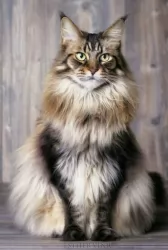 The handsome American Longhair cat is thought to be the result of attempts by breeders to have a cat that portrayed some Persian varieties.
The handsome American Longhair cat is thought to be the result of attempts by breeders to have a cat that portrayed some Persian varieties.
American shorthairs have characteristics and looks from both breeds. The American Longhair, although it comes from champion bloodlines, isn’t actually recognized by larger cat organizations.
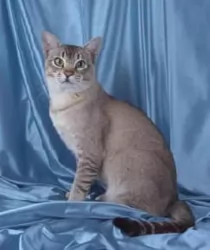 It is thought that the cat was brought to America by the Spanish to keep the rat population down.
It is thought that the cat was brought to America by the Spanish to keep the rat population down.
The name KEUDA stands for Kitten Evaluation Under Direct Assessment which is actually the name of a program that was running in Texas, Oklahoma and New Mexico and was for investigating the kinds of cats that survived as barn cats.
Today the Keuda isn’t registered and it’s not a well-known cat either, being looked upon as being similar to the Egyptian Mau breed as it shares some physical similarities with the Mau.
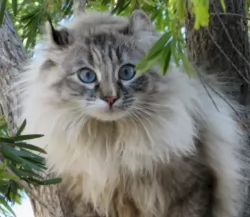 You’ll find that there are quite a few American Longhairs that have the snub nose of the Persian cat which is part of its ancestry.
You’ll find that there are quite a few American Longhairs that have the snub nose of the Persian cat which is part of its ancestry.
This is a well-muscled, medium to large sized athletic cat with a thick double coat of many colors and patterns that sheds fairly heavily.
This isn’t a particularly vocal cat, but in true cat-fashion, it is independent and doesn’t require a lot of attention.
This cat will make a nice companion for older people and it is calm enough to enjoy a leisurely stroll outdoors with a harness on. They’re adaptable to different situations, but the American Longhair isn’t the ideal choice for children as it isn’t your playful, lover of noise and games type of cat, preferring the attention of other animals.
They love going into barns and being buffeted and licked by the cows and other barnyard animals.
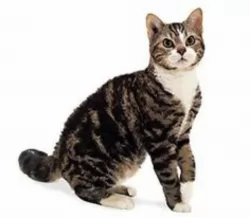 You can’t really pin-point what the American Keuda looks like as it looks a lot like the Maus but it can also look like a Siamese cat or even others.
You can’t really pin-point what the American Keuda looks like as it looks a lot like the Maus but it can also look like a Siamese cat or even others.
It is a medium-sized cat and can weigh up to 5 or 6kg while being very lithe and athletic. The head of the cat is medium-sized, the ears medium-large, the eyes almond-shaped, and the tail is slightly tapered.
An unusual aspect with this cat is its belly flap – loose skin that flaps at each elbow. The head is wedge-shaped, it has almond-shaped eyes, large ears and the fur is soft and silky and in a variety of patterns as well as solid colors. The coat is short to medium in length and there is no undercoat.
American Keudas are just your regular cat in personality - active, adaptable, inquisitive, and intelligent while being strong and agile.
They are also adaptable and social, getting along well with children as well as other pets in the home. It is also quite unusual in that it likes playing with water. They are also playful and love running, jumping and climbing and indoors it will want a climbing cat tree.
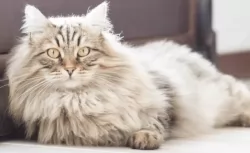 Your American Longhair is an easy-going, friendly social cat that doesn’t demand a lot from his human owners.
Your American Longhair is an easy-going, friendly social cat that doesn’t demand a lot from his human owners.
These cats are intelligent too and you can even teach them a trick or two. They enjoy the company of their humans and will even follow you around.
Bringing one into your home promises to be a rewarding pet-ownership experience.
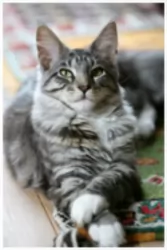 The beauty of American Keuda cats is that they are no-fuss cats and they are energetic, amicable, social, and playful and they make wonderful companions.
The beauty of American Keuda cats is that they are no-fuss cats and they are energetic, amicable, social, and playful and they make wonderful companions.
They are also fond of water and can even strike up a friendship with your dog. By bringing a Keuda into your home you can rely on a steady, loving friendship with your feline friend.
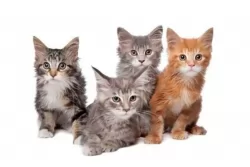 The American Longhair doesn’t have many health concerns and you can expect him to live up to 18, 19 or 20 years of age with good care.
The American Longhair doesn’t have many health concerns and you can expect him to live up to 18, 19 or 20 years of age with good care.
There are some American Longhairs that come with that shortened face of the Persian, and this may mean him battling with breathing problems.
Also, be aware of Polycystic kidney disease where you get cysts that form in the kidneys and which can become larger over time and eventually affect kidney function, leading to kidney failure.
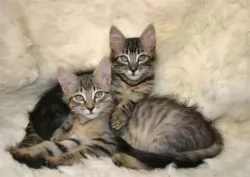 Thes cats enjoy good health and live to be 15 years of age or older even. You just have to watch out for him as they have no undercoats and it’s not a cat to do well in the cold.
Thes cats enjoy good health and live to be 15 years of age or older even. You just have to watch out for him as they have no undercoats and it’s not a cat to do well in the cold.
Whenever you buy a cat for the first time, try and find out about vaccines and previous conditions that might require special treatment.
Healthy kittens and cats are always alert and energetic with shiny coats and clear eyes.
Dental disease is quite common in cats, and it is always a good idea to have your pet’s teeth checked by your vet. Signs of pain with dental problems can include lethargy, pawing at the mouth, facial swelling, and reduced appetite. Get your cat immediately to the vet if you suspect problems with his teeth.
Neutering and spaying are imperative if you don’t want your pet to have kittens. It’s a simple operation for your pet and it comes with many health benefits for your cat. You don’t want your female cat having kittens as there are just already so many stray cats in shelters. Spaying and neutering mellows a cat too, makes them less prone to wandering, spraying, and fighting.
Make sure you have your American Keuda vaccinated against the many cat diseases that there are. Vaccinations are available against feline infectious enteritis or feline parvovirus, cat flu and feline leukemia virus, a disease that damages the cat’s immune system. Kittens require their first vaccine at around 8 weeks of age.
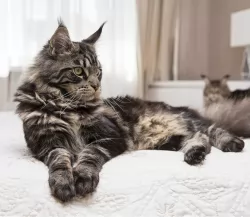 The long coat of the American Longhair will require some brushing to keep it shiny and smooth and free from dust but also to remove all those loose hairs.
The long coat of the American Longhair will require some brushing to keep it shiny and smooth and free from dust but also to remove all those loose hairs.
Make sure your cat’s food and water dishes are in an appropriate spot and keep them separate from your cat’s litter box. House train your cat immediately on how to use a litter box. Keep the litter box clean and rake up your cat's droppings regularly and dispose of them.
Before you get a cat, know that they scratch. It is normal for a cat. Provide your cat with a scratching post as well as climbing equipment such as a cat climbing tree.
Always feed your cat a meat-based diet, after all, cats in the wild are carnivores. There are some ingredients that a cat must have and they require certain amino acids found in meat-based proteins or else they could become ill.
The top quality cat foods provide cats with all the nutrients they need to keep them healthy. There are some cat owners who opt to feed their cats home-prepared meals because then they know exactly what’s going into their beloved pets food.
There are other cat owners who choose to provide their pet with a raw diet because they believe that this comes close to the cat's natural diet in the wild.
Always speak to your vet if you are in any way uncertain about the best foods for your cat. He should always have access to fresh cool water.
Check your cat for problems such as parasites such as ticks and fleas. You will also need to have your cat checked for worms. Your vet can diagnose worms with a physical exam. If it is discovered that your cat does have worms, the vet will recommend some safe, effective medications for your pet.
If you are able to, get your cat regular veterinary examinations to ensure he is always in tip-top condition.
Have your cat spayed or neutered to prevent unwelcome kittens in a world where there are just too many unwanted kittens. These procedures can have health benefits for your cat as well.
American Longhairs are lively playful cats so give your cat toys to play with to ensure mental stimulation.
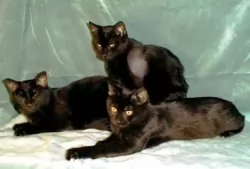 Every cat needs to be fed a complete, balanced high-in-protein food. There are heaps of different brands of cat food on the market - wet and dry. Always follow the manufacturer’s instructions and recommended amounts. If in any doubt about what to feed your cat, speak to your vet. Every cat needs a constant supply of fresh, cool water.
Every cat needs to be fed a complete, balanced high-in-protein food. There are heaps of different brands of cat food on the market - wet and dry. Always follow the manufacturer’s instructions and recommended amounts. If in any doubt about what to feed your cat, speak to your vet. Every cat needs a constant supply of fresh, cool water.
Both young and older cats love to play so ensure you provide your cat with stimulating toys as well as things such as climbing trees and a scratching post. Cats enjoy a high-up place where they can feel safe and view their surroundings from a height.
Cats spend many hours a day sleeping and you need to provide your cat with a warm, dry, comfortable, quiet place to rest. There are many cat beds available, but if you don’t have one, a cardboard box with one side removed and a soft cushion or blanket will do.
Invest in a litter box for your cat to do his business in and keep it in a safe, quiet place where your cat can ‘toilet’ in peace and quiet. These should be placed away from the food and water bowls. Make sure to keep a small plastic rake close by and rake up the cat droppings regularly to ensure the litter tray is nice and clean.
Your American Keuda is a short-haired cat but you want to brush the fur gently at least once a week. Grooming also provides you and your cat with some valuable bonding time.
Provide your cat with a collar to show everyone that he is yours. Also, have your cat microchipped – a tiny chip that carries your pet’s unique ID number and which is inserted safely and gently under the cat's skin.
Have your cat treated and free from parasites such as ticks, fleas, and worms. Speak to your vet about this.